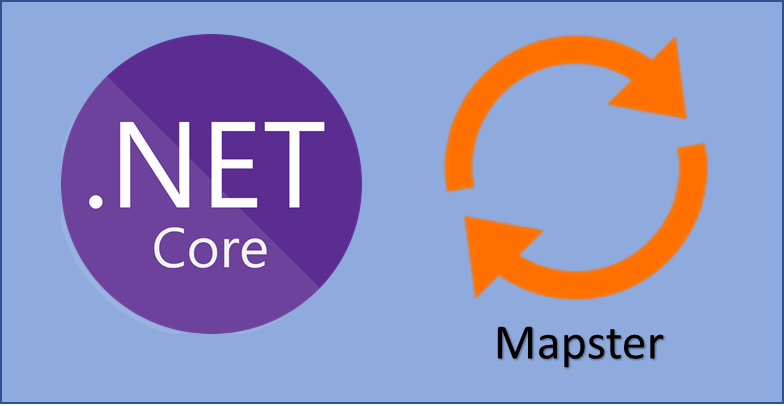AutoMapper Alternatives in .NET: Meet Mapster
A deep dive into Mapster: the lightweight, fast, and flexible alternative to AutoMapper.
When building modern .NET applications, object mapping plays a crucial role especially in layered architectures like Clean Architecture or Onion Architecture. The most popular library in this space has long been AutoMapper. But what if you’re looking for an alternative that's lightweight, faster, and offers compile-time safety?
Enter Mapster.
❓ Why Look Beyond AutoMapper?
AutoMapper is powerful, but it comes with some trade-offs:
🔧 Reflection-based mapping, which can hurt performance.
🐞 Runtime errors if configuration is missing or misaligned.
🧪 Difficult to debug or trace mappings.
🐘 A bit heavy for microservices or performance-critical environments.
While AutoMapper works well in many scenarios, some developers find themselves wanting something leaner and faster especially in high-performance or cloud-native .NET apps.
⚡ Meet Mapster – The Lightweight Contender
Mapster is a fast and flexible object-to-object mapper for .NET. Unlike AutoMapper, Mapster supports compile-time generation of mapping code, eliminating runtime reflection overhead.
🔑 Key Features
✅ Zero runtime reflection (when using
Mapster.SourceGenerator)💡 Flexible configuration via fluent API or attribute-based mapping
🧵 Thread-safe, lightweight, and high-performance
💥 Can generate code at compile time for blazing speed
⚙️ How Mapster Works
1. Install Mapster NuGet Packages
Install the Mapster.SourceGenerator NuGet package and decorate your DTO:
Mapster will generate the mapping code during build, removing runtime overhead.
dotnet add package Mapster
dotnet add package Mapster.DependencyInjection2. Define Source and Destination Models
public class Event
{
public int Id { get; set; }
public string Name { get; set; }
}
public class EventRepresentationModel
{
public int EventId { get; set; }
public string EventName { get; set; }
}3. Create Mapping Configuration (optional)
using Mapster;
public class EventRegister : IRegister
{
public void Register(TypeAdapterConfig config)
{
config.NewConfig<Event, EventRepresentationModel>()
.Map(dest => dest.EventId, src => src.Id)
.Map(dest => dest.EventName, src => src.Name);
}
}Call this config method during startup (e.g., in Program.cs or Startup.cs):
builder.Services.AddMapster();
TypeAdapterConfig.GlobalSettings.Scan(typeof(EventRegister).Assembly);
4: Perform Mapping
// Sample source object
var ev = new Event
{
Id = 123,
Name = "Annual Meetup"
};
// Adapt the object
EventRepresentationModel model = ev.Adapt<EventRepresentationModel>();
Console.WriteLine($"EventId: {model.EventId}"); // 123
Console.WriteLine($"EventName: {model.EventName}"); // Annual Meetup🧠 Why Mapster?
Faster than AutoMapper
Easy setup
Compile-time mapping support
Clean, lightweight
Mapster vs. AutoMapper
While AutoMapper is mature and widely used, Mapster offers:
Better Performance: Up to 12x faster in some scenarios due to compile-time code generation.
Lower Memory Usage: Uses significantly less memory, ideal for high-throughput APIs.
Simpler Setup: Less boilerplate for basic mappings. However, AutoMapper has stronger community support and more extensive documentation, which may matter for larger teams.
🚀 When Should You Use Mapster?
✅ You need maximum performance and want to eliminate runtime mapping bottlenecks.
✅ You're building a microservice or mobile-backend and need to keep things lean.
✅ You prefer compile-time errors over runtime surprises.
✅ You're tired of maintaining mapping profiles or want cleaner DI registration.
🧠 Final Thoughts
AutoMapper is still a solid tool, especially if your team is already comfortable with it. But if you want more control, speed, and simplicity, Mapster is a fantastic modern alternative.
If you're starting a new .NET project in 2025, Mapster is worth a serious look.
💬 Have You Tried Mapster Yet?
Drop a comment below or share your experience switching from AutoMapper. Would love to hear your thoughts! 👇
📁 GitHub Example
👉 Full working code available at:
🔗 https://sourcecode.kanaiyakatarmal.com/mymediatr
I hope you found this guide helpful and informative.
Thanks for reading!
If you enjoyed this article, feel free to share it and follow me for more practical, developer-friendly content like this.


